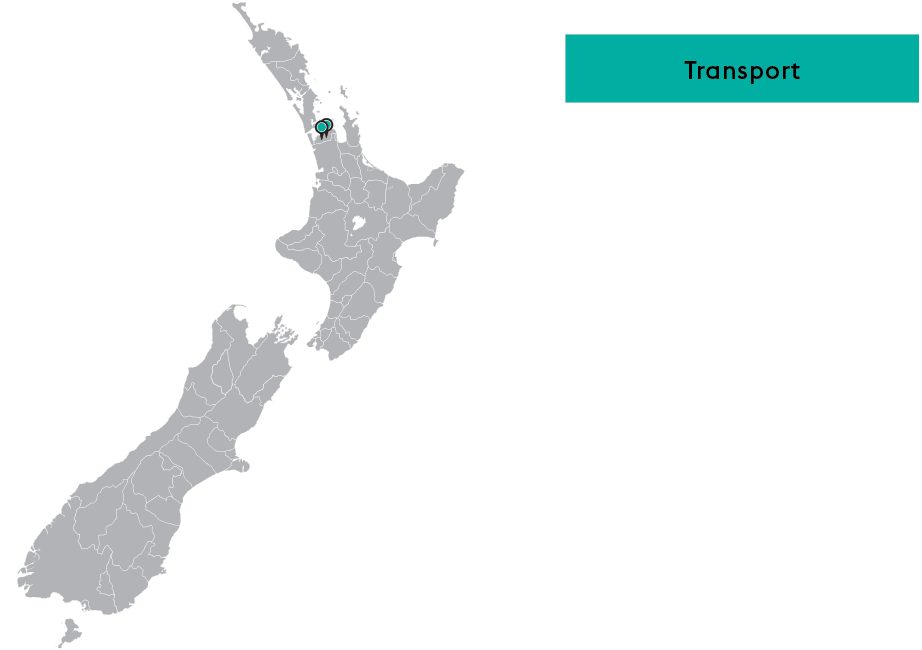The COVID-19 Recovery (Fast-track Consenting) Act 2020 (FTCA) has been important in supporting Aotearoa's recovery from the economic and social impacts of COVID-19. The regime has been highly successful, with 53 projects referred for approval, 23 consents obtained, and over 18,000 jobs created as at 19 April 2022.
The FTCA was initially due to expire on 8 July 2022 but has since been extended for another year. With the fast track process no longer in its infancy, based on our team's experience in various roles on approximately 10 projects so far,[1] we have reflected on who should be looking to utilise it before it expires, and what makes an application successful.
Projects referred, by sector:

Key features
The fast track process has two stages:
- First, the project needs to be referred by the Minister for the Environment. The Minister will consider how the project will achieve the purpose of the FTCA and has broad discretion in considering this. A full consent application is not needed but a high-level consideration of the environmental effects of the project, how those will be managed, and the expected benefits of the project, all need to be outlined.
- Second, once referred by the Minister, a full consent application needs to be made to the Environmental Protection Authority, which will be considered by an expert consenting panel. This is similar to a consent application under the Resource Management Act (RMA) with key differences being that a comprehensive suite of proposed conditions must be provided with the application, as well as cultural impact assessments from all relevant iwi authorities (or if they are not being provided, the reasons from the iwi authority as to why not).
Who should look to use it?
Any type of project could be suitable, providing it achieves the purpose of the FTCA in terms of job creation to support Aotearoa's recovery from the social and economic impacts of COVID-19, while continuing to promote the sustainable management of natural and physical resources. To date, a wide range of projects have been approved, from renewable energy to housing and mixed-use developments, water storage to rail and road infrastructure.
Projects that will particularly benefit from using the fast track process are:
-
Those that have strong evidence of job creation that will support recovery from the social and economic impacts of COVID-19, in particular those industries that have been worst affected, including tourism, hospitality, and construction. Economic evidence in support of these benefits is strongly preferred, although not essential.
-
Those that would otherwise experience delays through the RMA. A key example is where a consent application is anticipated to be notified but has environmental effects that can be identified and readily managed through conditions. There is no notification under the FTCA, with affected parties confined to providing comments only, allowing for significant time savings.[2]
-
Those that are "shovel ready". To benefit from a fast consent you need to be able to show you can implement the consent soon after it is granted. This means doing the design work up front, providing a comprehensive suite of proposed conditions, and ensuring contractors and materials will be available to commence works as soon as possible after consent is obtained.
Applicants should also be willing to engage early with stakeholders. Panels expect applicants to show genuine engagement, especially with iwi, with any steps taken to be supported by evidence. The FTCA also requires that cultural impact assessments (or evidence that the relevant iwi authority does not wish to provide one) accompany an application. Applicants have often struggled to obtain confirmation from relevant iwi authorities that a cultural impact assessment is not required. This reinforces the need to clearly outline the efforts made to engage with the relevant iwi authorities. A failure to engage with relevant iwi authorities can create challenges for applicants – for example, one project required the process to be suspended while it sought to obtain a cultural impact assessment from a relevant iwi authority.
Councils will ultimately be responsible for monitoring and enforcing the consents, or approving applications to amend conditions, so applicants should be prepared to bring them along through the process. Engagement with relevant councils prior to lodgement can significantly assist in managing the risk associated with the draft condition process. Some councils are reluctant to engage because of the effort involved and the lack of appropriate cost recovery for councils, and so some applicants have agreed to meet council costs through that "pre-app" process to manage project risk.
Why use the FTCA?
The feedback from applicants that have used the process have been positive, with a number of parties using the process for multiple projects. Here are some of the key attractions of the FTCA process:
It's much quicker
Under the FTCA, the referral process and expert consenting panel processes typically take three to four months each. This compares to the standard RMA consent process where a notified council hearing process can take as long as two years with Environment Court appeals.
Where breathing space is needed to further refine designs or address issues identified through the fast track process, we have seen applicants effectively use the suspension option to their advantage. Applicants are encouraged to consider how to best utilise the suspension process to pause proceedings as a means of addressing tricky issues, but this should be used judiciously as the overall suspension is only 50 working days.
No hearing
There is provision under the FTCA for Panels to hold a hearing, but to date no hearings have been held. Hearings under the RMA substantially contribute to costs and delays, and are often unavoidable if an application is notified. Approximately 5.5% of total project budget goes to seeking a resource consent. As of 2021, 17% of projects reported significant financial disadvantage from delay as a result of consenting, at an average of 1.7% of the project's total budget.[3]
Limited appeal rights
Appeal rights under the FTCA are limited to questions of law only. Under the RMA, Environment Court appeals are heard "de novo", which can mean the applicant has to start the resource consent application process over again, adding to delays and costs. To date, there have been no appeals of Panel decisions. Where particular consent conditions are unworkable, applicants can use the standard section 127 process under the RMA to subsequently change or cancel consent conditions, which avoids the need for a costly appeal.
Is fast track here to stay?
With RMA reforms in the foreseeable future, Minister for the Environment David Parker suggested in a recent article that consideration ought to be given to whether aspects of the fast track system should be carried forward to the new system under the RMA reform. While no decision has been made on what, if any of the FTCA will survive, it has demonstrated a faster consenting process does not need to be at the expense of quality decision making. However, there are aspects that would need to be considered if this process were to have a more permanent role, including how the Pandemic recovery-related thresholds for entry would apply during "peacetime", addressing resourcing issues for decision-making at both the referral and consenting panel stage, and managing some of the tensions between the process and tikanga.
From our experience, the FTCA has been a success so far, and should be utilised where possible while we still have it.
Please do not hesitate to contact one of our experts if you would like to discuss the fast-track process further.



